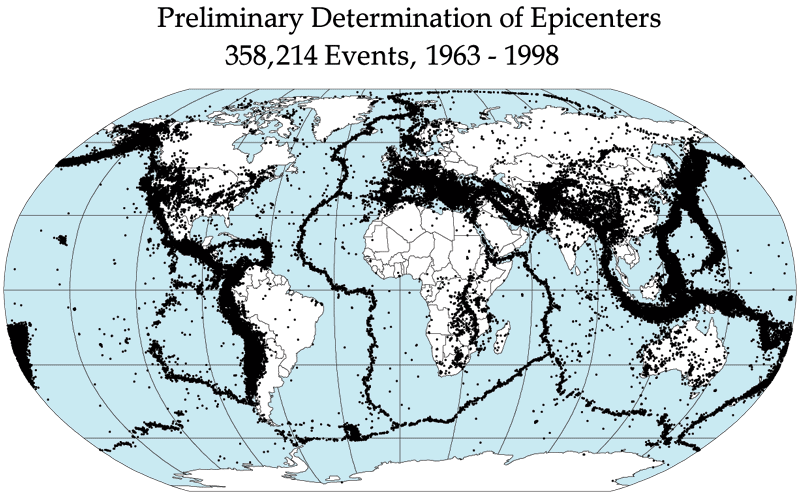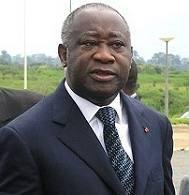|
National Disaster Management Organization
The National Disaster Management Organisation (NADMO) is the government agency that is responsible for the management of disasters as well as other emergencies in Ghana. The board operates under Ghana's Ministry of Interior. History Ghana formed the National Disaster Management Organisation in 1996, backed by an act of Parliament (Act 927) to manage disasters and emergencies. This was after Ghana had responded to the United Nations Declaration GAD 44/236 of 1989 declaring 1990 to 1999 as the International Decade for Natural Disaster Reduction (IDNDR). NADMO is part of the Ghana Ministry of Interior. It has a Board of Directors selected from, the Ministries of Health, Finance, Social Welfare, Interior, Information, National Mobilization Programme, Ghana Armed Forces, and non-governmental organizations (NGOs), among others. The first Board was chaired by, Brig. (Rtd.) Dr. G. K. Deh, Director of Medical Services (DMS), Ghana Armed Forces Prior to the formation of NADMO, the Nat ... [...More Info...] [...Related Items...] OR: [Wikipedia] [Google] [Baidu] |
Ghana
Ghana (; tw, Gaana, ee, Gana), officially the Republic of Ghana, is a country in West Africa. It abuts the Gulf of Guinea and the Atlantic Ocean to the south, sharing borders with Ivory Coast in the west, Burkina Faso in the north, and Togo in the east.Jackson, John G. (2001) ''Introduction to African Civilizations'', Citadel Press, p. 201, . Ghana covers an area of , spanning diverse biomes that range from coastal savannas to tropical rainforests. With nearly 31 million inhabitants (according to 2021 census), Ghana is the List of African countries by population, second-most populous country in West Africa, after Nigeria. The capital and List of cities in Ghana, largest city is Accra; other major cities are Kumasi, Tamale, Ghana, Tamale, and Sekondi-Takoradi. The first permanent state in present-day Ghana was the Bono state of the 11th century. Numerous kingdoms and empires emerged over the centuries, of which the most powerful were the Kingdom of Dagbon in the north and ... [...More Info...] [...Related Items...] OR: [Wikipedia] [Google] [Baidu] |
Earthquake
An earthquake (also known as a quake, tremor or temblor) is the shaking of the surface of the Earth resulting from a sudden release of energy in the Earth's lithosphere that creates seismic waves. Earthquakes can range in intensity, from those that are so weak that they cannot be felt, to those violent enough to propel objects and people into the air, damage critical infrastructure, and wreak destruction across entire cities. The seismic activity of an area is the frequency, type, and size of earthquakes experienced over a particular time period. The seismicity at a particular location in the Earth is the average rate of seismic energy release per unit volume. The word ''tremor'' is also used for Episodic tremor and slip, non-earthquake seismic rumbling. At the Earth's surface, earthquakes manifest themselves by shaking and displacing or disrupting the ground. When the epicenter of a large earthquake is located offshore, the seabed may be displaced sufficiently to cause ... [...More Info...] [...Related Items...] OR: [Wikipedia] [Google] [Baidu] |
United Nations High Commissioner For Refugees
The United Nations High Commissioner for Refugees (UNHCR) is a United Nations agency mandated to aid and protect refugees, forcibly displaced communities, and stateless people, and to assist in their voluntary repatriation, local integration or resettlement to a third country. It is headquartered in Geneva, Switzerland, with over 17,300 staff working in 135 countries. Background UNHCR was created in 1950 to address the refugee crisis that resulted from World War II. The 1951 Refugee Convention established the scope and legal framework of the agency's work, which initially focused on Europeans uprooted by the war. Beginning in the late 1950s, displacement caused by other conflicts, from the Hungarian Uprising to the decolonization of Africa and Asia, broadened the scope of UNHCR's operations. Commensurate with the 1967 Protocol to the Refugee Convention, which expanded the geographic and temporal scope of refugee assistance, UNHCR operated across the world, with the bu ... [...More Info...] [...Related Items...] OR: [Wikipedia] [Google] [Baidu] |
Catholicism
The Catholic Church, also known as the Roman Catholic Church, is the largest Christian church, with 1.3 billion baptized Catholics worldwide . It is among the world's oldest and largest international institutions, and has played a prominent role in the history and development of Western civilization.O'Collins, p. v (preface). The church consists of 24 ''sui iuris'' churches, including the Latin Church and 23 Eastern Catholic Churches, which comprise almost 3,500 dioceses and eparchies located around the world. The pope, who is the bishop of Rome, is the chief pastor of the church. The bishopric of Rome, known as the Holy See, is the central governing authority of the church. The administrative body of the Holy See, the Roman Curia, has its principal offices in Vatican City, a small enclave of the Italian city of Rome, of which the pope is head of state. The core beliefs of Catholicism are found in the Nicene Creed. The Catholic Church teaches that it is th ... [...More Info...] [...Related Items...] OR: [Wikipedia] [Google] [Baidu] |
Refugee Board (Ghana)
The Ghana Refugee Board was established under the Ghana Refugee Law 1992 (PNDCL 305D), and is charged with the management of activities relating to refugees in Ghana. It is under the control of the Ministry of the Interior. Functions of the board The main preoccupation of the Refugee Board is with refugees. Its functions include: *interviewing individuals seeking refugee status *granting refugee status to asylum seekers from areas of civil conflict or places where they face political persecution. *oversight over all refugee camps in the country. The board also cooperates with other agencies to carry out its mandate, as it did in March 2011 faced with an influx of refugees from Côte d'Ivoire (Ivory Coast), who had fled during the Second Ivorian Civil War. Head of the board The head of the Refugee Board is Chairman Kenneth Dzirasah. Dzirasah was the Former First Deputy Speaker of Parliament and succeeded Emmanuel Owusu Bentil. Liberian refugees The Budumburam Camp in the Centr ... [...More Info...] [...Related Items...] OR: [Wikipedia] [Google] [Baidu] |
Refugee Camp
A refugee camp is a temporary settlement built to receive refugees and people in refugee-like situations. Refugee camps usually accommodate displaced people who have fled their home country, but camps are also made for internally displaced people. Usually, refugees seek asylum after they have escaped war in their home countries, but some camps also house environmental and economic migrants. Camps with over a hundred thousand people are common, but as of 2012, the average-sized camp housed around 11,400. They are usually built and run by a government, the United Nations, international organizations (such as the International Committee of the Red Cross), or non-governmental organization. Unofficial refugee camps, such as Idomeni in Greece or the Calais jungle in France, are where refugees are largely left without support of governments or international organizations. Refugee camps generally develop in an impromptu fashion with the aim of meeting basic human needs for only a shor ... [...More Info...] [...Related Items...] OR: [Wikipedia] [Google] [Baidu] |
Côte D'Ivoire
Ivory Coast, also known as Côte d'Ivoire, officially the Republic of Côte d'Ivoire, is a country on the southern coast of West Africa. Its capital is Yamoussoukro, in the centre of the country, while its largest city and economic centre is the port city of Abidjan. It borders Guinea to the northwest, Liberia to the west, Mali to the northwest, Burkina Faso to the northeast, Ghana to the east, and the Gulf of Guinea (Atlantic Ocean) to the south. Its official language is French, and indigenous languages are also widely used, including Bété, Baoulé, Dioula, Dan, Anyin, and Cebaara Senufo. In total, there are around 78 different languages spoken in Ivory Coast. The country has a religiously diverse population, including numerous followers of Christianity, Islam, and indigenous faiths. Before its colonization by Europeans, Ivory Coast was home to several states, including Gyaaman, the Kong Empire, and Baoulé. The area became a protectorate of France in 1843 and ... [...More Info...] [...Related Items...] OR: [Wikipedia] [Google] [Baidu] |
Reuters
Reuters ( ) is a news agency owned by Thomson Reuters Corporation. It employs around 2,500 journalists and 600 photojournalists in about 200 locations worldwide. Reuters is one of the largest news agencies in the world. The agency was established in London in 1851 by the German-born Paul Reuter. It was acquired by the Thomson Corporation of Canada in 2008 and now makes up the media division of Thomson Reuters. History 19th century Paul Reuter worked at a book-publishing firm in Berlin and was involved in distributing radical pamphlets at the beginning of the Revolutions in 1848. These publications brought much attention to Reuter, who in 1850 developed a prototype news service in Aachen using homing pigeons and electric telegraphy from 1851 on, in order to transmit messages between Brussels and Aachen, in what today is Aachen's Reuters House. Reuter moved to London in 1851 and established a news wire agency at the London Royal Exchange. Headquartered in London, Reuter' ... [...More Info...] [...Related Items...] OR: [Wikipedia] [Google] [Baidu] |
Laurent Gbagbo
Koudou Laurent Gbagbo , FPI website . ( Gagnoa Bété: ; ; born 31 May 1945) is an Ivorian politician who was the President of Côte d'Ivoire from 2000 until his arrest in April 2011. A historian, Gbagbo was imprisoned in the early 1970s and again in the early 1990s, and he lived in exile in France during much of the 1980s as a result of his union activism. Gbagbo founded the (FPI) in 1982 and ran unsuccessfully for president against |
Alassane Ouattara
Alassane Dramane Ouattara (; ; born 1 January 1942) is an Ivorian politician who has been President of Ivory Coast (Côte d'Ivoire) since 2010. An economist by profession, Ouattara worked for the International Monetary Fund (IMF)"Ivory Coast's Alassane Ouattara in profile" , , 11 April 2011. and the (french: Banque Centrale des Etats de l'Afrique de l'Ouest, BCEAO), and he was the |
Ivorian Presidential Election, 2010
Presidential elections were held in Ivory Coast in 2010. The first round was held on 31 October, and a second round, in which President Laurent Gbagbo faced opposition leader Alassane Ouattara, was held on 28 November 2010. Originally scheduled to be held in 2005, the vote was delayed several times due to the Ivorian Civil War and difficulties involved in the organization and preparation of the elections. A peace agreement between the government and the former rebel New Forces was signed on 4 March 2007,"Ivorian president vows to hold elections as scheduled" Xinhua (''People's Daily''), 10 July 2007. and in late April 2009, it was announced that the elections would be held by 6 December 2009, and that the date would be announced shortly. On 15 May 2009, the date was announced to be 29 N ... [...More Info...] [...Related Items...] OR: [Wikipedia] [Google] [Baidu] |
2010–2011 Ivorian Crisis
The 2010–11 Ivorian crisis was a political crisis in Ivory Coast which began after Laurent Gbagbo, the President of Ivory Coast since 2000, was proclaimed the winner of the Ivorian election of 2010, the first election in the country in 10 years. The opposition candidate, Alassane Ouattara, and a number of countries, organisations and leaders worldwide claimed Ouattara had won the election. After months of attempted negotiation and sporadic violence, the crisis entered a decisive stage as Ouattara's forces began a military offensive in which they quickly gained control of most of the country and besieged key targets in Abidjan, the country's largest city. At the time, international organizations reported numerous human rights violations, and the UN undertook its own military action with the stated objective to protect itself and civilians. A significant step in bringing an end to the crisis occurred on 11 April 2011 upon the capture and arrest of Gbagbo in Abidjan by pro-Ouat ... [...More Info...] [...Related Items...] OR: [Wikipedia] [Google] [Baidu] |

.jpg)



